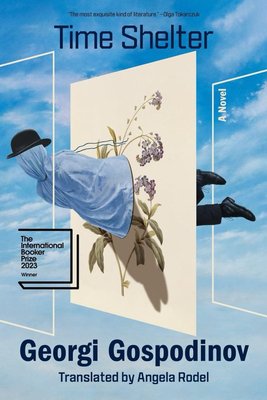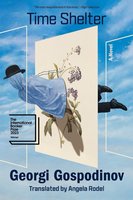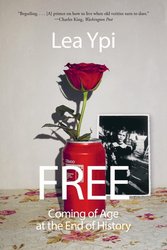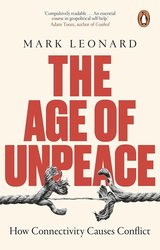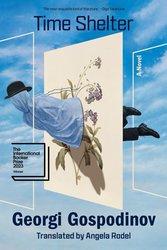WINNER OF THE 2023 INTERNATIONAL BOOKER PRIZE New Yorker • Best Books of 2022 An award-winning international sensation―with a second-act dystopian twist― Time Shelter is a tour de force set in a world clamoring for the past before it forgets. “At one point they tried to calculate when time began, when exactly the earth had been created,” begins Time Shelter ’s enigmatic narrator, who will go unnamed. “In the mid–seventeenth century, the Irish bishop Ussher calculated not only the exact year, but also a starting date: October 22, 4,004 years before Christ.” But for our narrator, time as he knows it begins when he meets Gaustine, a “vagrant in time” who has distanced his life from contemporary reality by reading old news, wearing tattered old clothes, and haunting the lost avenues of the twentieth century. In an apricot-colored building in Zurich, surrounded by curiously planted forget-me-nots, Gaustine has opened the first “clinic for the past,” an institution that offers an inspired treatment for Alzheimer’s sufferers: each floor reproduces a past decade in minute detail, allowing patients to transport themselves back in time to unlock what is left of their fading memories. Serving as Gaustine’s assistant, the narrator is tasked with collecting the flotsam and jetsam of the past, from 1960s furniture and 1940s shirt buttons to nostalgic scents and even wisps of afternoon light. But as the charade becomes more convincing, an increasing number of healthy people seek out the clinic to escape from the dead-end of their daily lives―a development that results in an unexpected conundrum when the past begins to invade the present. Through sharply satirical, labyrinth-like vignettes reminiscent of Italo Calvino and Franz Kafka, the narrator recounts in breathtaking prose just how he became entrenched in a plot to stop time itself. “A trickster at heart, and often very funny” (Garth Greenwell, The New Yorker ), prolific Bulgarian author Georgi Gospodinov masterfully stalks the tragedies of the last century, including our own, in what becomes a haunting and eerily prescient novel teeming with ideas. Exquisitely translated by Angela Rodel, Time Shelter is a truly unforgettable classic from “one of Europe’s most fascinating and irreplaceable novelists” (Dave Eggers). 19 drawings
